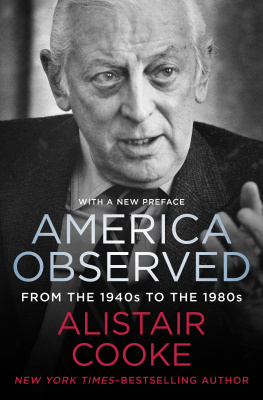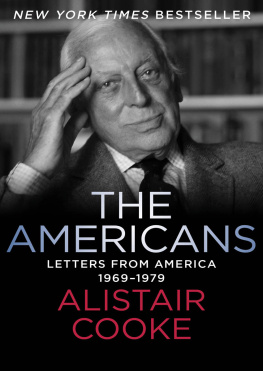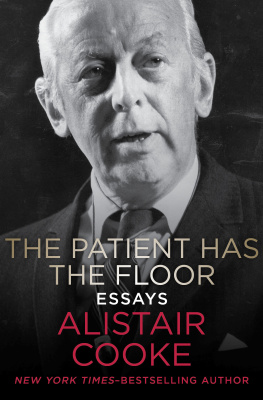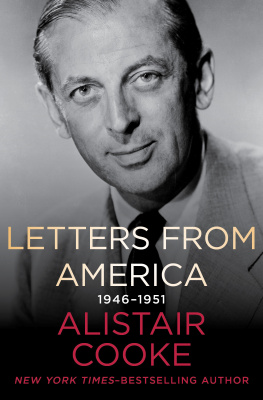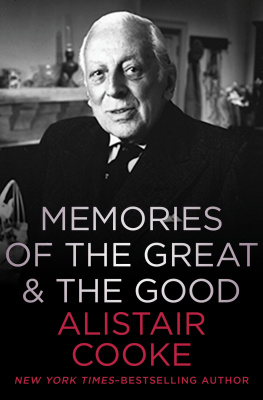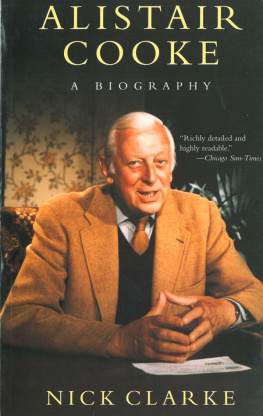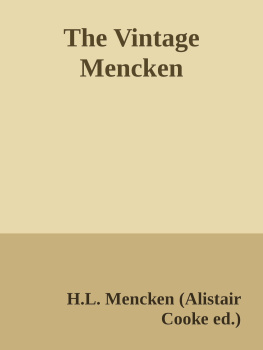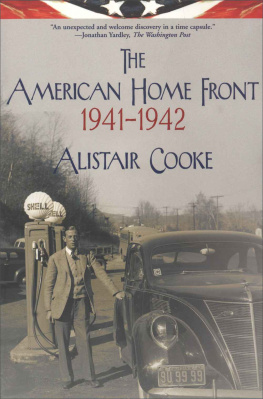
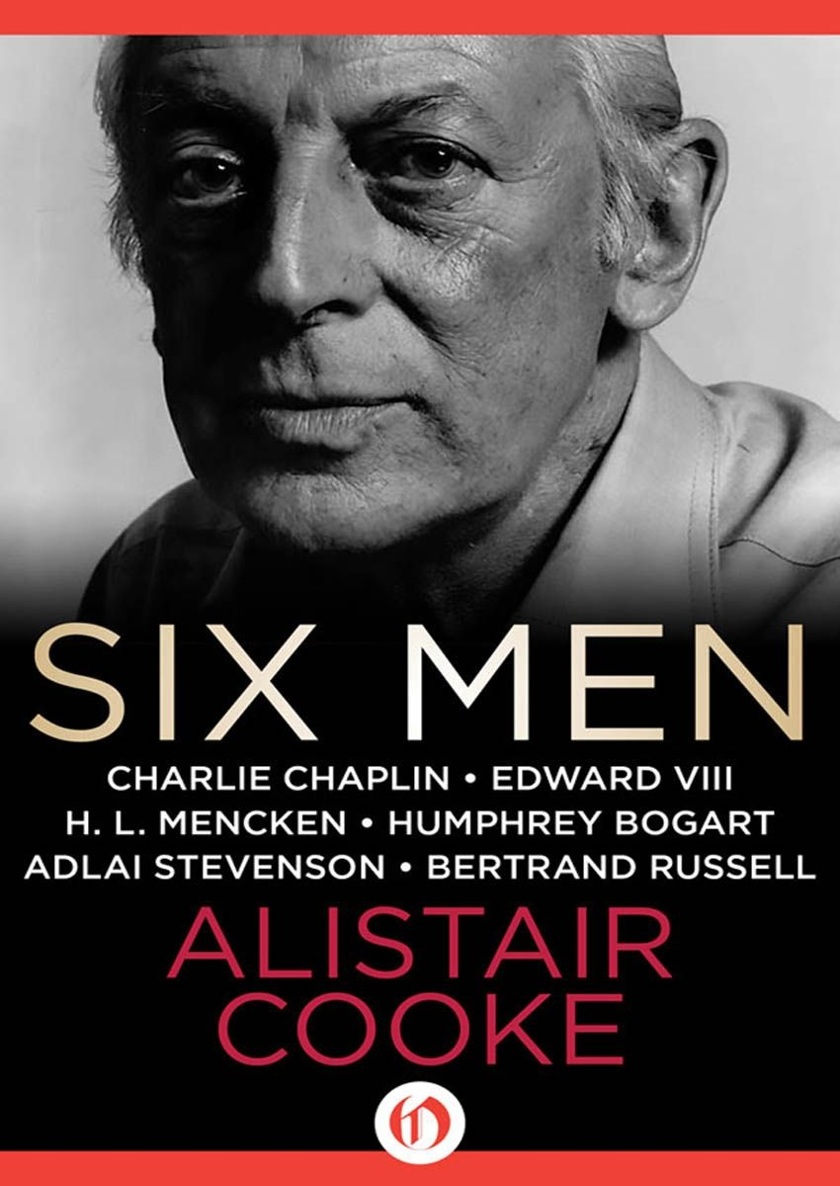


EARLYBIRDBOOKS
FRESHEBOOKDEALS,DELIVEREDDAILY
BETHEFIRSTTOKNOWABOUT
FREEANDDISCOUNTEDEBOOKS
NEWDEALSHATCHEVERYDAY!

SixMen
AlistairCooke
For
NunnallyJohnson
18971977
CONTENTS
AUTHORSNOTE
Inashorterform,thechaptersonMenckenandBogartoriginallyappearedinthe AtlanticMonthly, and the one on Edward VIII in the New Yorker. The chapters on Chaplin, BertrandRussellandAdlaiStevensonarequitenew.
A.C.
Gratefulacknowledgementismadetothefollowingforpermissiontoreprintpreviously publishedmaterial.CrownPublishers,Inc.,andGeorgeG.Harrap&CompanyLtd.Brief excerptsfrom TheLaterEgobyJamesAgate,editedbyJacquesBarzun.Copyright1951
byCrownPublishersInc.
J.B.LippincottCompanyandGeorgeWeidenfeld&NicolsonLtd.Briefexcerptsfrom EdwardVIIIbyFrancesDonaldson.Copyright1974,1975byFrancesDonaldson.
Little,BrownandCompanyinassociationwithTheAtlanticMonthlyPressandGeorge
Allen & Unwin Ltd. Poem entitled To Edith reprinted from The Autobiography ofBertrand Russell 18721914. Copyright 1951, 1952, 1953, 1967 by Bertrand Russell.
Copyright1961byAllen&UnwinLtd.Copyright1967byGeorgeAllen&Unwin Ltd.
The New York Times. Excerpt from an article by Harold Laski reprinted from the December 7, 1936, issue of The New York Times. Copyright by The New York Times Company.
PublishedbyarrangementwithAlfredA.Knopf,Inc.
ANOTEONFAMEANDFRIENDSHIP
Morethanhalfacenturyago,inhis MirrorsofDowningStreet,acollectionofwhatwere then called character studies of men in power, Harold Begbie put the quandary of the memoiristverysuccinctly:Publicmenmustexpectpubliccriticism,andnocriticismisso good for them, and therefore for the State, as criticism of character; but their position is difficult, and they may justly complain when those to whom they have spoken in the candourofprivateconversationmakeuseofsuchconfidencesforapublicpurpose.
Inourday,themarketingofconfidencesspokeninthecandourofprivateconversation
has become a big and frequently disreputable business. An outraged victim can expect littlebalmfromthecourts,sincethecourtshavedecidedthatalmostanyactoflicence
from a scurrilous biography to filmed close-ups of writhing genitaliais just what the Founding Fathers had in mind to defend when they wrote the First Amendment to the Constitution.
Anyone who has been subjected to press interviews or, worse, to profiles in depth
(usually composed on the basis of a two-hour conversation) knows that only very rarely doestheprintedpieceapproximatetoaplausibleaccountofthesubjectsviews,letalone toarecognisablesketchofacharacterthatisnotastereotype.
Theintelligentcomplaintisnotthatthesubjectsvanityhasbeenpunctured,orwhat, as a general proposition is always truethat he dislikes being disliked. The flattering piecesare,inmyexperience,oftenasunsatisfactoryasthedenigratingones.Notfromthe interviewersill-will,butbecauseaprofileofanybodyscharacterhastobesoselective of obvious traits and passing impressions as to create not so much a false image as a syntheticoriginal.Itis,indeed,withsuchslickconfectionsthatpoliticiansandmovieand televisionstarshavetocometoterms.
Ihavetriedtobearthesethingsinmind.ButBegbieisright.Famousmenandwomen,
by the act of putting themselves on display, whether as politicians, actors, writers, painters, musicians, restaurateurs or whatever, invite public appraisal. They are all, impressively or pathetically, acting on the presumption that their ideas, their fantasies, their music, their bodies are more original than those of, say, a plumber or a chartered accountant.Theyareallexercisingtheimpulse,asMenckenputit,toflaptheirwingsin public.Thisissoobvioustothecriticand,Ibelieve,totheordinaryreaderorspectator
that it seems hardly worth saying. But resentment of the practice of criticism itself is strong among professional artists (and all Presidents of the United States). There is a psychological type among them that hates critics on principle as parasites or failed performers.Thisisverynaturalbutsurelyverychildishand,inanycountryclaimingtobe civilised, actually anti-social. The existence of critics, good, bad or indifferent, is a firm clauseinthesocialcontractbetweenthegovernorsandthegovernedinanynationthatis not a dictatorship. Public figures should accept with good grace the public response to their invitation to be admired and resist the temptation to retort, except in the face of flagrant malice. The truth is that the constant reader, or viewer or listener, is usually prejudicedabouttheperformerbeforetheperformance.Ifhelikesyou,hewilllikeyouall themore;ifhedislikesyou,hewilldislikeyouallthemore.Veryfewpeoplewhobegin to read this book will, I imagine, have an open mind on more than one or two of its subjects.
Granted, thenI hopethat my own motives are if not pure at least circumspect, the readerwillwanttoknowwhythechoiceofthesesix.Icouldsay,truthfully,thattheyare sixmenIhaveadmiredandalsoliked.Butthequestionthatnaturallyfollowsis,howdid itcomeaboutthatI,whohalfthetimewasanobscurejournalist,couldcomeclosetosuch godsasChaplinandMencken?ThesimpletrueansweristhatofalltheeminentpeopleI havehadoccasiontoruninto,thesesixweretheoneswhomostdemonstrablytooktome!
Ihastentodampentheardourofthisegotismatoncebysayingthatitisnotdifficultfor political journalists in America, for foreign correspondents especially, to get on familiar termswithpublicmen.Indeed,thehigherthestatusofapolitician,themoreheseemsto craveagoodnoticeabroad.Itisoneofthehazardsofourtrade.Washingtonishauntedby theapologeticghostsofoncefirst-ratecorrespondentswhobecamepermanentlydisabled forthedisinterestedreportingofaPresident,orsomeotherbigwig,afteranearlydoseof intimacy.Morethanthirtyyearsago,ItookapledgewithJamesRestonof TheNewYorkTimesmyoldestfriendinthebusinesstoresistconsortingwithpoliticiansbeyondthe bounds of acquaintanceship. Adlai Stevenson, I think, is my only case of backsliding.
Thereweretimeswhenitwasawkwardtohavetowritefreelyabouthim,althoughImust saythatwhenItooktheriskhewasremarkablymagnanimous,acceptingaslaphereand thereasoneoftheprerogativesofmyprofession.
Stevenson,then,IshouldneverhaveknownifIhadnotbeenaforeigncorrespondent.
Nor Bogart either, had it not been for the accident of a single assignment. As I later explain,ImetBertrandRussellathisownsuggestion,aflatterylikelytoprejudicemein hisfavourfromthestart.Butfromthatfirstmeetingon,IhadthesamefeelingasIdhad withChaplinandMencken:thatIhadknownhimmostofmylifeandthatwehadbeen
companionsforcountlessyears.AsforEdwardVIII,itwouldbeabsurdformetopretend thatIwasevermorethananoddingacquaintance.Imethiminprivatenomorethanthree orfourtimes,andgotacitizensglimpseofhiminpubliconascoreormoreoccasions.
Butheisaspecialcase:aschoolboysidolwholeftalifelongimpression(thoughmineon him, I am sure, left barely a trace); and a journalists once-in-a-lifetime assignment to follow,atclosequarters,thedownfallofaKing-Emperor.
What is involved in such relationships is a form of emotional chemistry, so far unexplainedbyanyschoolofpsychiatryIamawareof,thatconditionsnothingsosimple as a choice between the poles of attraction and repulsion. You can meet some people thirty, forty times down the years, and they remain amiable bystanders, like the shore lights of towns that a sailor passes at stated times but never calls at on the regular run.
Next page

